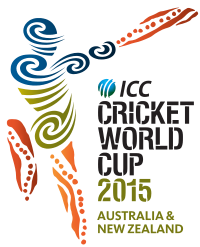What Happened Next?
Neil Pickup |
After a build-up that at times seemed as if it would take an eternity, the 2015 Cricket World Cup finally got underway to something of a false start, as New Zealand and Sri Lanka reached the 18-over mark in the opening fixture before realising that the tournament had begun, and they were not in fact playing another game in their ODI series. Kane Williamson was still not out, nevertheless, and the Black Caps strolled to victory as the gathered media filtered away from the ground to watch Lasith Malinga continue to feel his way through a comeback that is possibly the only thing in world cricket that has been longer-winded than the tournament itself.
Attention switched across the Tasman Sea as the co-hosts got their proceedings underway against their old enemy/whipping boy, England, and to the surprise of precisely nobody, the hosts prevailed without needing to pick out anything beyond second gear. David Warner bludgeoned a traditionally tone-setting century before Stuart Broad’s final two overs cost 47 as the hosts posted 383. England were ahead of the run-rate, an imposing 7.7 per over, until the fifth over, when Moeen Ali sliced the ball to third man and Ian Bell picked out cover in consecutive deliveries. Ravi Bopara made an 89-ball 38 to prolong the inevitable defeat, an innings described as “resolute” by the media and “painful” by the six England fans who stayed until his final miscue gave Steve Smith a catch so straightforward he opted to take the ball in one hand with his eyes closed. Kevin Pietersen then tweeted that Kevin Pietersen thought Kevin Pietersen should be in the England side, but Piers Morgan was the only person to retweet it.
The first major talking point of the World Cup came as Ireland took on the West Indies, the kind of fixture that anyone who truly understands the purpose of the world game knew would be nothing more than an irrelevant time-filler, giving air to an Associate member much better off asphyxiated, and would never be a contest. There was only ever one side in it. The West Indies were bowled out for 88 in 9.2 overs, a display later defended by Jason Holder as being one where the side did their utmost to take the initiative of the game and hit the Irish bowlers off their lengths, as the Netherlands did so effectively the last time anyone in Ireland played any cricket. William Porterfield gave an eloquent defence of Associate cricket in his own press conference, only for the ICC’s official broadcast to transmit that episode of South Park with the leprechaun in it instead. Meanwhile, the WICB concluded that the defeat meant that their squad was too old, that it was time to call up younger replacements and build for the future, and promptly got in touch with the principals of Kingston College and Bridgetown High School.
The tournament progressed into Week 2/3/4/5, and the main attraction became the task of working out which teams were playing, where they were playing, whether the fixture actually mattered in the slightest in the grand scheme of things, and if anybody outside the players’ immediate families would turn up. Scotland may or may not have won their first fixture at a global tournament, and Paul Collingwood may have painted himself from head to toe in the cross of St Andrew, but (mercifully) there is no photographic evidence of either. India posted 576/5 against a hapless gaggle of West Indian schoolboys (who were then promptly given a week’s detention,sent home by the WICB and replaced by their younger brothers).
The Bajan U11s still proved competent enough to dispose of a UAE side reeling from a mid-tournament rule change that demanded countries fielded at least nine native-born players. When asked for any legal basis or justification behind this ruling, the ICC denied any suggestion that it had anything to do with England calling up Ben Stokes to replace Ravi Bopara, who had been found cowering in the toilet blocks at the SCG having been bounced out by Dawlat Zadran, and simply declared that it was their ball and their stumps and if anyone else didn’t like it then they could go home. Interestingly, MS Dhoni gave an identical response when Zimbabwe attempted to refer a caught-behind decision in their final group fixture, adding that India had paid for the DRS system, and Zimbabwe hadn’t, so they could decide when they got to use it.
After the fun of the group stages, the semi-final lineup pitched South Africa against Sri Lanka, India against top seeds England (sadly this particular adjective is one of the few factually accurate things in this preview), and co-hosts Australia and New Zealand against Pakistan and underdogs Ireland respectively. The first knockout game saw Lasith Malinga take the field at long last, and as the South African run chase approached the final over, five runs were required with five wickets in hand. The stage was set for a reprise of the 2011 heroics as the “slinger” took the ball and marked out his run, before spearing an inswinger down to the fine leg boundary and sending the South Africans through before they even had time to consider the contents of their supper, never mind choking on it.
The form book made a reappearance at this stage, with England’s unbeaten record against India in Australia under Eoin Morgan (also true) proving an excellent predictor for things to come, the England attack bringing back nightmarish memories of the English summer just past as James Anderson, Stuart Broad and Chris Woakes reduced India to 53 for 6. New Zealand proved far too strong for Ireland, demonstrating beyond any reasonable doubt that future World Cups should only be contested between full member nations, regardless of any beatings suffered by Bangladesh, Zimbabwe and the West Indies. The fourth quarter-final proved memorable mostly for the fact that Shahid Afridi retired from international cricket at the exact moment when a particularly badly top-edged slog reached the apex of the parabola between his own miscue and James Faulkner’s hands, and insisting that the scorebook be altered on the grounds that there was no way he was getting out to Xavier Doherty.
This left the Kiwis to take on the Proteas in the first semi-final before an Ashes rematch in the second game, but unfortunately for the global audience, none of the final knockouts would be broadcast following a careless question in a press conference following India’s elimination, when it was pointed out that the billion-dollar powerhouse had only achieved as much as lowly Ireland. Enraged, the BCCI official insisted that this “ludicrous eventuality” was an indication of how important it was for the tournament to be reduced. When challenged to justify at which point this reduction would stop, and whether the World Cup would ultimately head the way of the MLB World Series, the bureaucrat blinked twice, professed his eternal love and gratitude for the journalist, and waltzed out of the room, setting the wheels in motion for the World Challenge finals. Remarkably, the series between India Invincibles and India Incredibles could only be scheduled at exactly the same dates and times as the World Cup fixtures, and as the World Challenge would enjoy far higher viewing figures it was deemed to take priority.
Back in the Antipodes, the absence of TV coverage meant the death knell for DRS, and unfortunately for Australia, the sudden rush of power and responsibility went straight to Billy Bowden’s head, and the green and gold were 33 for 9 at the end of the first over. Bowden was wheeled straight to the nearest asylum, despite his protests that he now couldn’t be referred anywhere, as a bemused Chris Woakes wondered how he had managed to break the records for best bowling figures and most expensive over in the space of 15 minutes. On the back of New Zealand’s elimination two days earlier – despite a delay in proceedings when several expert lawyers were required to explain to Kane Williamson what “out” was, having edged behind for 9 to finish the competition with an average of 1089 – both hosts had been eliminated.
This meant a showdown at the MCG between England and South Africa, and a slew of articles reminiscing about the 1992 World Cup and making ill-judged remarks about the Duckworth/Lewis system despite the fact that D/L was not used in ODI cricket until 1997. An outstanding all-round display put England in a commanding position until a rain delay interrupted proceedings, and incredibly when play resumed, South Africa required 22 runs from one Stuart Broad delivery.
Three no-ball maximums later, AB de Villiers had his hands on the trophy.





Hahahahaha that’s brilliant.
Comment by zorax | 10:28pm GMT 12 February 2015
Yeah that’s great
This was the best line imo
“Bowden was wheeled straight to the nearest asylum, despite his protests that he now couldn’t be referred anywhere”
Comment by Daemon | 10:29pm GMT 12 February 2015
This is hilarious.
Comment by weldone | 8:38pm GMT 13 February 2015
“Shahid Afridi retired from international cricket at the exact moment when a particularly badly top-edged slog reached the apex of the parabola between his own miscue and James Faulkner’s hands, and insisting that the scorebook be altered on the grounds that there was no way he was getting out to Xavier Doherty”
Brilliance.
Comment by OverratedSanity | 8:38pm GMT 13 February 2015